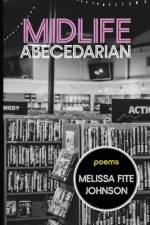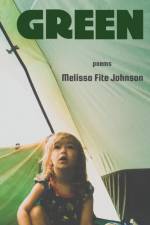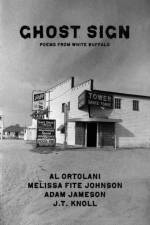av Melissa Fite Johnson
259,-
Midlife Abecedarian is a nostalgic collection that takes the reader on a journey through time. It provides a template for a life well-lived, even if you're only halfway through. Conjuring memories and a sense of satisfaction and comfort, Midlife Abecedarian is a map to things remembered and things best left forgotten. It does not reminisce on the one that got away, instead it shows the reader that the one who stayed is the one to build a life with. With a keen eye for making the ordinary extraordinary, Melissa Fite Johnson pulls the reader into her world, which may not be cool to the high schoolers she teaches, but it is a world you'll find yourself reflected back in. And it is a world you'll want to return to, again and again. **With deep, unapologetic attention to the revelations of midlife, Melissa Fite Johnson's MIDLIFE ABECEDARIAN reads as devotional to the miraculous present and as fearless, honest reckoning with the past. What does it mean to find peace, to be grounded in our own right at the midpoint of our lives, even as God is a glass / drying on the counter, even as the wind insists and every blade of grass bristles? Who are we as women if we do not choose to be mothers? Who are we as women if we choose to love ourselves and to be loved? MIDLIFE ABECEDARIAN accounts for what remains unresolved in our histories, but it also insists that we acknowledge the sacred and ordinary moments of daily life as they unfold. In this striking collection, Johnson acclaims the power of forging one's own path, in a world which tries relentlessly to define us. -Joan Kwon Glass, author of Night SwimThis collection revels in formal skill and inventiveness, filled with sonnets, villanelles, pantoums, and of course abecedarians as well as free verse and prose poems. These poems invite the reader to engage not only with the contemporary but also with American literary tradition, particularly represented by Whitman, who appears in several poems as a kind of ornery muse. In response to Whitman's cosmic perspective, Melissa Fite Johnson asks us to pay attention to the inescapable, ineffable texture of the now: "I am trying to write the present. / A quiet night, a photo of a moment // I wouldn't think to photograph. Isn't this / the origin of all poems? The blink, the breath."-Laura Passin, author of Borrowing Your BodyIn Midlife Abecedarian, Johnson "miracles" the ordinary, claiming "no one wants to hear that shit" and then "writing the opposite." She states, "I was beginning," as she is, and as we all are, every day, beginning anew. These poems insist on vulnerability, on NOT pretending, as they urge the reader to believe that "there are many paths to happiness." The speaker is inviting-part 90's teen, part woman, part teacher, part poet. This book is one of those paths. These poems are a balm, offering, "This is why / we're here-to live and to die, for someone to care." Isn't that the point of poetry? To find magic in the ordinary? She admits that loving her life might not be a popular opinion, but it is. We should all be so lucky. Let these poems inspire love, attention and overall, care. -Leah Umansky, author of Of Tyrant



